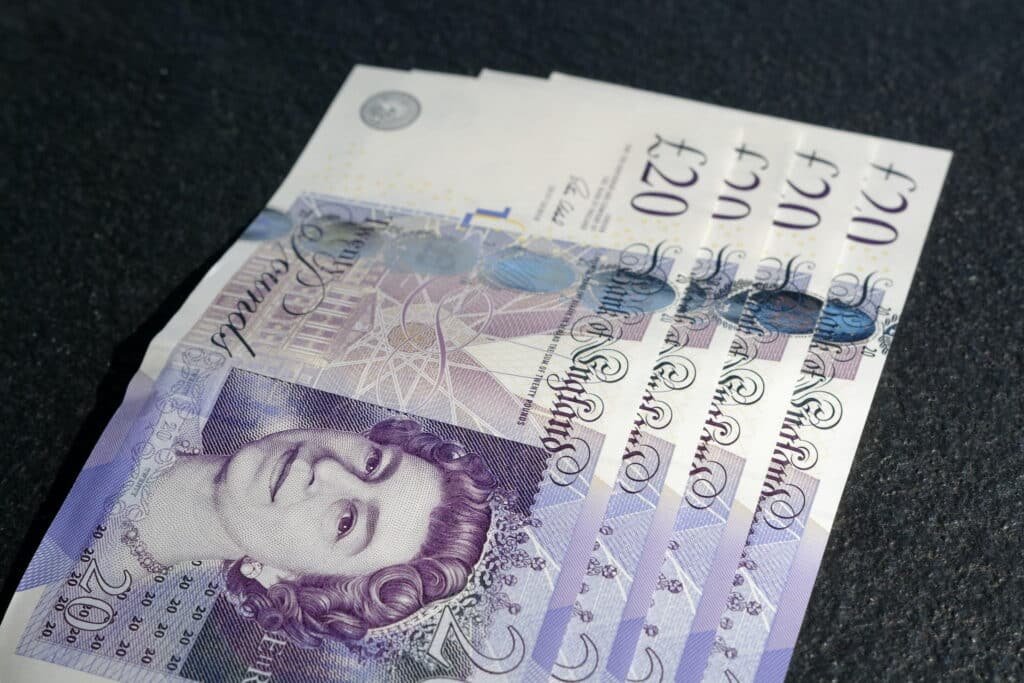
According to the Office of National Statistics, the average UK family spends £587 per week, which works out to around £2350 per month. But what are British people spending their savings on?
This value mainly refers to the money needed for daily expenses, but it is also well known that people like to spend their savings on restaurants, hotels, travelling and other things as well.
The value of £585 per week, therefore, does not only include expenses for basic goods, such as food, water, transport, and bills, but also travel and other recreational activities. Of course, the amount of money spent by households changes according to the geographical area in which people live.
For instance, a family based in London obviously spends a lot more money than a household that lives in a more isolated area or outside the big cities. According to official data, a London-based family spends approximately £34.000 compared to £28.000 spent by suburban families.
This happens because basic goods, like food and transportation, are a lot more expensive in the big cities. Again, as for the essential goods, the ONS reports a rate of 19% of the total outgoing on paying rent, while mortgage holders have to pay 13% of their salary on the mortgage.
As for transport, families who own a car spend around £1000 per year on diesel or petrol, while the UK household who use public transportation spend around £900 per year. The remaining money is obviously used for recreational and cultural activities, such as Internet connection, cinema nights, gym membership, television and streaming platforms subscriptions, pets and holidays.
Of course, this remaining value includes goods like clothing and footwear, gardening supplies, and health, body and beauty care. For a better comprehension of this matter, keep on reading since in the next paragraphs we will explore in detail the average costs of an English family for food, recreational and cultural activities.
Also, we will also consider the average savings by age and income in the UK.
How much do British people spend on household goods, clothing and footwear?
Managing a house obviously requires monthly costs. For instance, a broken window, the purchase of new chairs and other household items, the purchase of new furniture and house decorations, domestic services, cleaning products and maintenance work might be included in the family’s monthly expenses.
As for clothing and footwear, official data reveal a monthly expense of about £19. Generally, UK families with many female members tend to spend a little more on clothes and shoes than households with a majority of men. Also, households with infants or young children tend to overspend on clothes and baby supplies.

How much do British people spend on food and restaurants?
Food is obviously a very important part of human life, which falls within the category of basic necessities. However, according to the ONS data, the average British household only spends £56 on food and non-alcoholic drinks.
That’s because nowadays people use to eat meals outside the house, both for work and convenience reasons and for recreational purposes. Every week, a British family spends around £40 on restaurants, cafés and pubs.
Again, it is important to remember that this value will be much higher for families based in London or in other big cities, and at the same time it will be much lower for those who live in the countryside or in the suburbs.
How much do British people spend on recreation and culture?
As for recreational and cultural activities, these represent as well a really important part of the average UK household’s life.
A family based in the UK spends an average of £76 per week on recreational activities, such as sports, television and streaming subscriptions, cinema nights, games and videogames, gardening supplies, books, newspapers and of course holidays and trips.
Families with young children tend to spend a little more on other activities, such as afterschool programs, tutoring, children’s sports and more.
Are British people saving their money?
Once we have considered how are British spending their money, it should be noticed that what is not designed to be spent for household goods, food and other expenses, it’s usually set up for future investments and savings for emergencies.
As a matter of fact, there’s a correlation between average income and savings. Studies suggest that around 15% of people in the UK have no savings for emergencies, but this highly depends on the average age and income of households.
In fact, people that have a low income around £1500 per month tend to have low or no savings at all. On the other hand, households with a higher income have around £60,000 saved.
Moreover, the savings also rely on age and generally the savings grow as people get older. Younger people aged 22-29 are not saving at all and only 10% of them have saved around £3000. Whereas people aged above 55 have saved around £20,000 and it’s the highest average saving in the UK.
